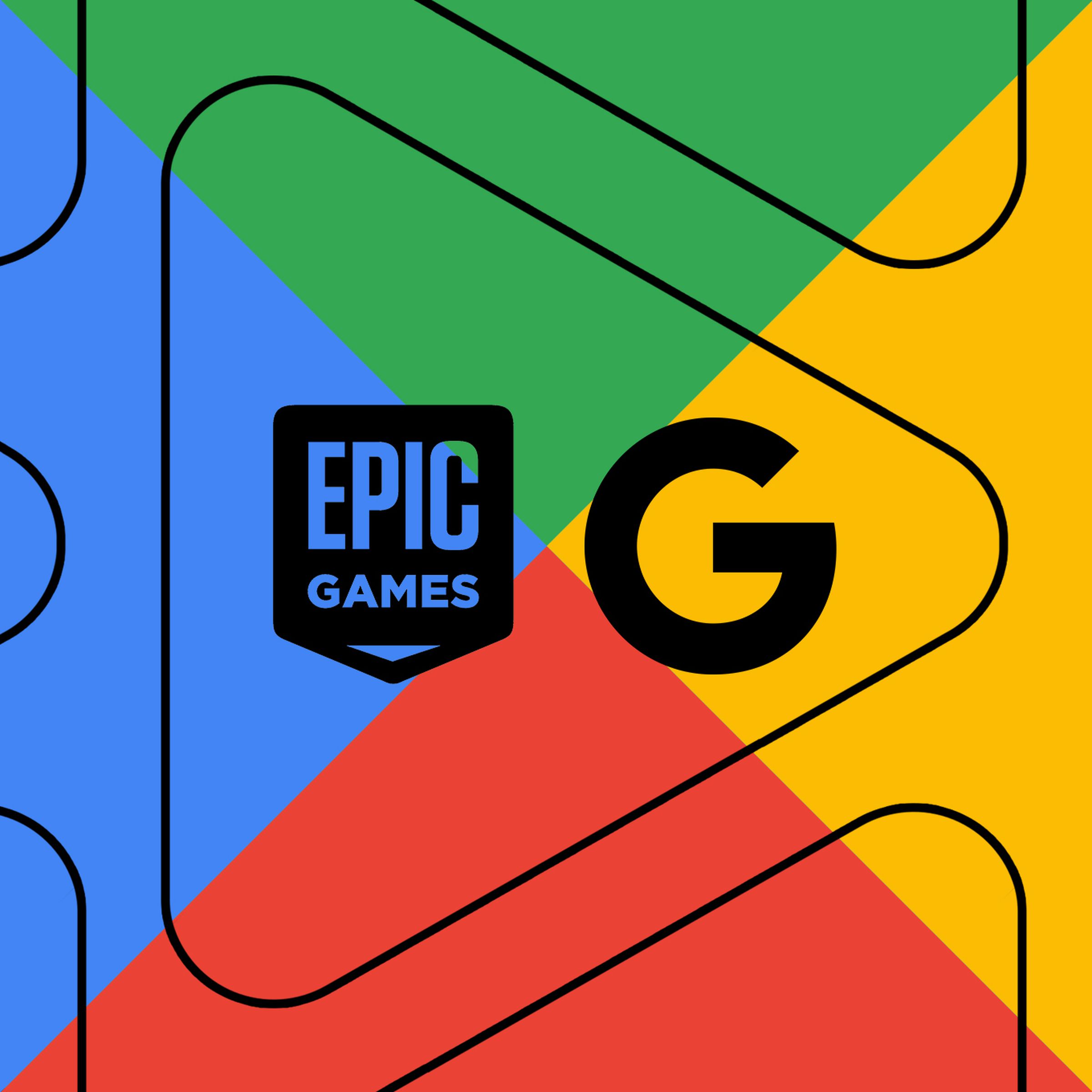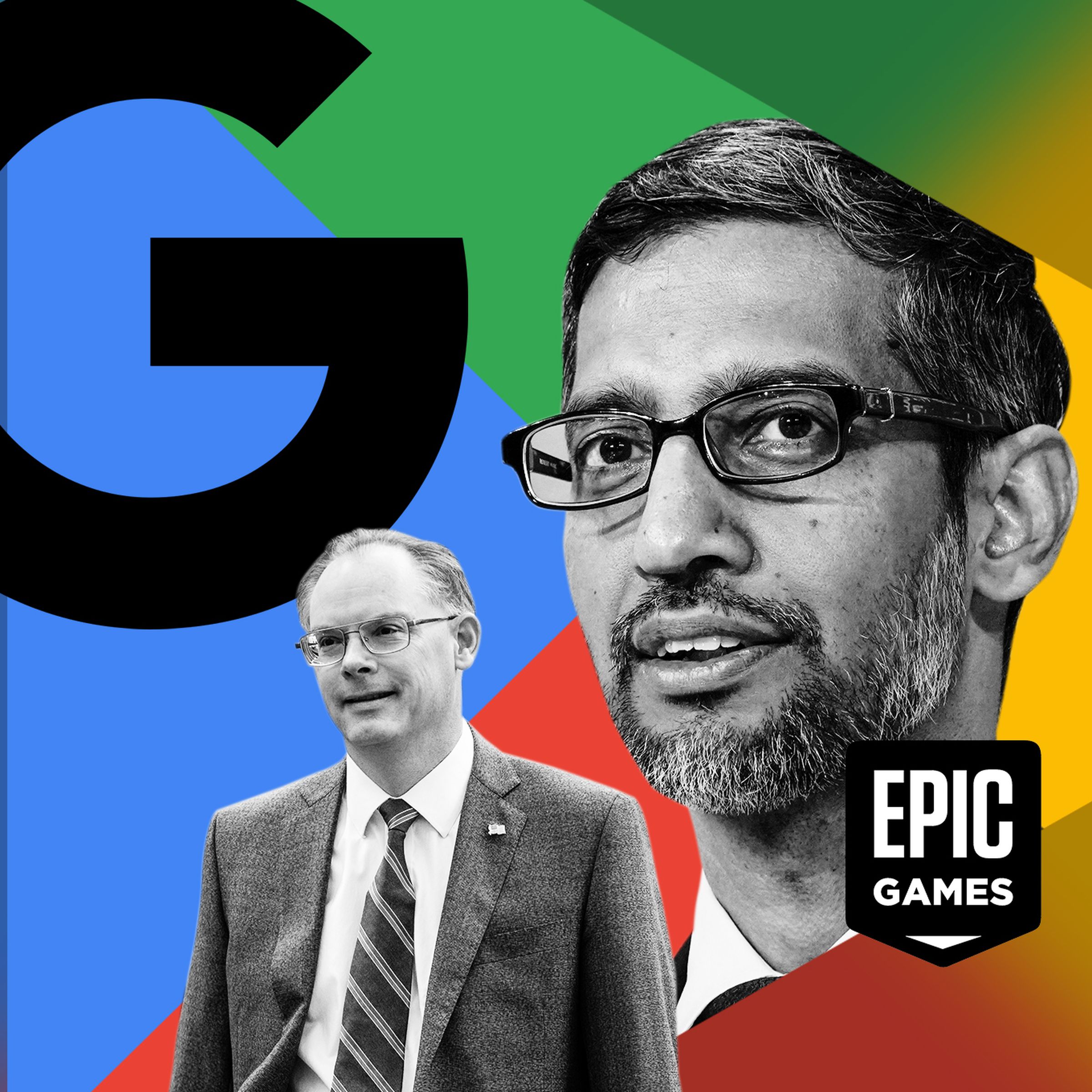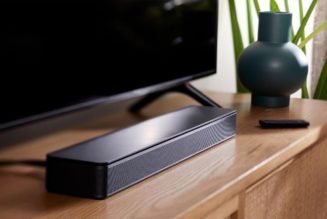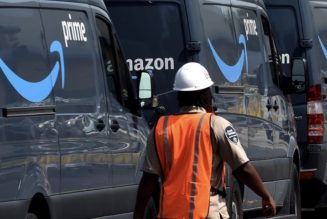The future of Google’s app store is at stake in a lawsuit by Fortnite publisher Epic Games. Epic sued Google in 2020 after a fight over in-app purchase fees, claiming the Android operating system’s Google Play store constituted an unlawful monopoly. It wanted Google to make using third-party app stores, sideloaded apps, and non-Google payment processors easier — while Google said its demands would damage Android’s ability to offer a secure user experience and compete with Apple’s iOS.
On December 11th, the jury ruled in Epic’s favor, finding that Google has turned its Google Play app store and Google Play Billing service into an illegal monopoly, answering yes to every question in front of them about Google’s monopoly power, anticompetitive behavior, and the illegal ties between the different parts of its business.
Follow along with all of our updates below.
Highlights
-
And here is Epic’s celebratory blog post after the Epic v. Google ruling.
In case you’re wondering why Tim Sweeney was thanking jurors on behalf of one million developers… it’s part of this blog post too.
-

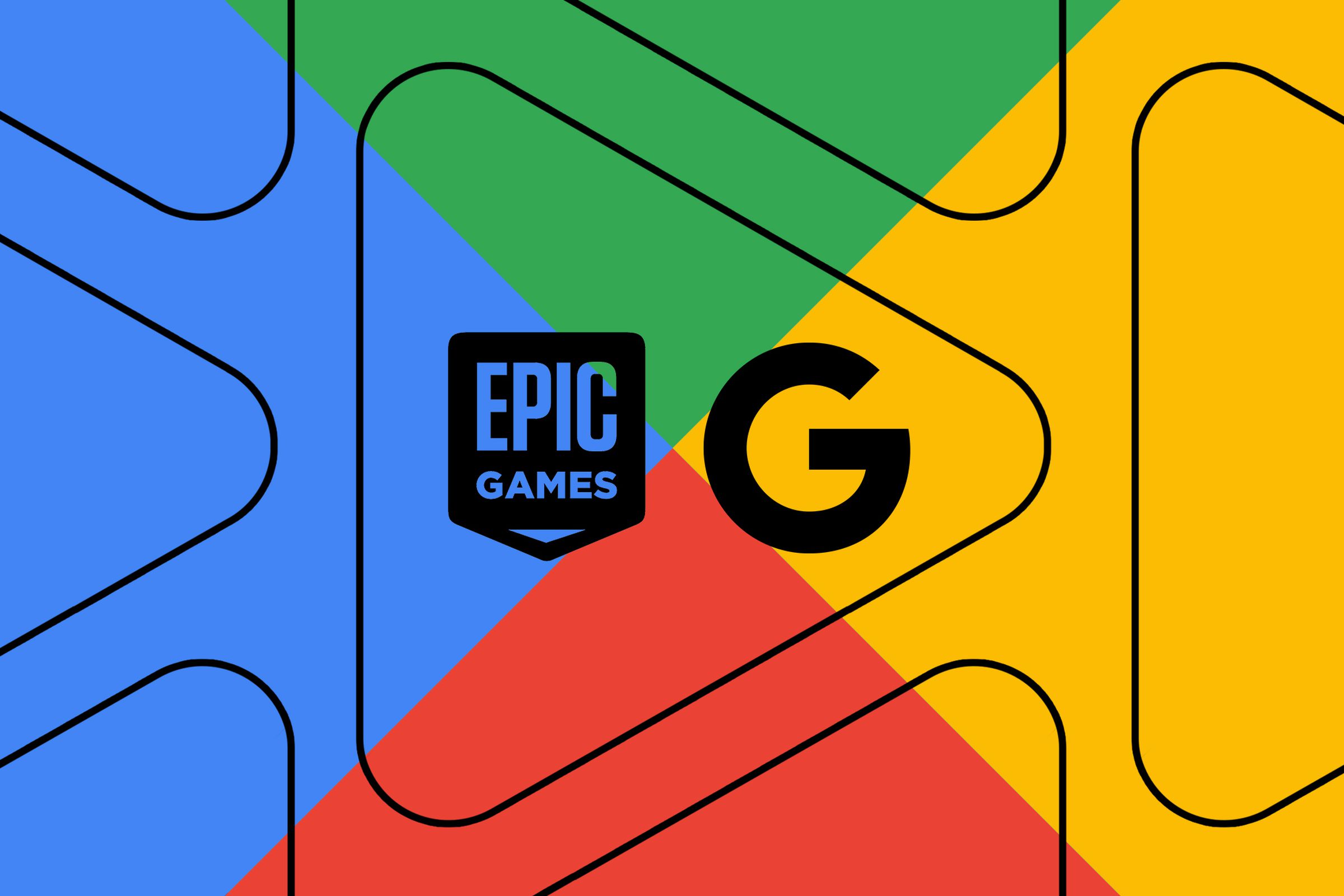 Illustration by Cath Virginia / The Verge
Illustration by Cath Virginia / The VergeThree years after Fortnite-maker Epic Games sued Apple and Google for allegedly running illegal app store monopolies, Epic has a win. The jury in Epic v. Google has just delivered its verdict — and it found that Google turned its Google Play app store and Google Play Billing service into an illegal monopoly.
After just a few hours of deliberation, the jury unanimously answered yes to every question put before them — that Google has monopoly power in the Android app distribution markets and in-app billing services markets, that Google did anticompetitive things in those markets, and that Epic was injured by that behavior. They decided Google has an illegal tie between its Google Play app store and its Google Play Billing payment services, too, and that its distribution agreement, Project Hug deals with game developers and deals with OEMs were all anticompetitive.
-
Google will appeal the Epic v. Google verdict.
We plan to challenge the verdict. Android and Google Play provide more choice and openness than any other major mobile platform. The trial made clear that we compete fiercely with Apple and its App Store, as well as app stores on Android devices and gaming consoles. We will continue to defend the Android business model and remain deeply committed to our users, partners, and the broader Android ecosystem. – Wilson White, VP, Government Affairs & Public Policy
That’s not surprising: a jury gave Epic a total victory today.
-
Here is Tim Sweeney’s victory tweet following the Epic v. Google verdict:
“Victory over Google! After 4 weeks of detailed court testimony, the California jury found against the Google Play monopoly on all counts. The Court’s work on remedies will start in January. Thanks for everyone’s support and faith! Free Fortnite!”
-
In the hallway, Epic’s attorneys are taking photos with the jurors.
The jury is all smiles. “The one million game developers who couldn’t be here thank you,” says Sweeney, as they head into the elevator and down out of the courthouse.
-
Epic CEO Tim Sweeney has a huge smile on his face, and is shaking hands.
He thanked Google’s lead attorney Glenn Pomerantz “for being very professional,” and clapped Epic’s lead attorney Gary Bornstein on the back.
Attorneys for both sides will meet with the judge in the second week of January to discuss next steps.
-
The jury is returning to the courtroom now.
The judge says he will read it out.
-
We have a verdict in Epic v. Google.
Stand by… attorneys and journalists have filed back into the courtroom. We’re waiting for the judge and jury now.
-
We’re done with closing arguments in Epic v. Google.
Bornstein asked the jury to carefully read the jury instructions because Google apparently cherry-picked a sentence to point out to them earlier. He also asked them to consider whether Google tried to nip competition in the bud before it could ever emerge.
The jury filed out, the judge thanked both parties for preparing the case well and arguing it efficiently… and now, we’re done until there’s a verdict! It sounds like the jury will eat lunch before beginning deliberations, so I should have time to grab some food as well.
-
Epic: “I agree with Google, we need to look at the real world.”
Epic is getting eight minutes of rebuttal to Google’s closing argument, and lead attorney Gary Bornstein is using part of it to argue this: we should look at the internal documents in this case to see what’s actually going on.
“What did they say in their documents? That tells you what they believed in the real world.”
He begins by showing one of the emails Google showed us about reacting to an Apple change in price — and that Google chose not to follow that price change at the time.
“They chose not to change their price despite believing that Apple was changing theirs,” he says, and “during that time not a single developer pulled out of the Play Store to focus on iOS.”
-
Google points out Epic has never shown a less restrictive way to collect its fee.
Kravis says it’s a “reliable and efficient way to collect the fee” to tie it to its own billing system — which is why every other app and game platform does it the same way, he claims.
-
Hah, yes, Google is also visually showing the jury which box it believes they should check on the verdict form.
But unlike Epic, it’s using red X’s instead of check marks on its visual aids.
-
“We would all love to get something amazing for free.”
Google has come around to Tim Sweeney’s “billions” quote once again, painting Epic as a self-serving company. The antitrust laws do not require Google to give up its services for free, says Kravis.
He also took us back to the testimony of an Epic employee who was more than uncomfortable with Epic’s Project Liberty trap for Google, asking, “Are we just pawns in Tim’s game?”
-
Google addresses the chat elephant in the room — briefly.
“I’m sorry, your honor, but I believe this is contrary to the court’s order,” interrupts Epic lead attorney Gary Bornstein, The judge lets Google’s attorney proceed but tells him to “walk carefully.”
“Consider this: the facts remain unchanged. The data remains unchanged,” begins Kravis.
“Time and again during this trial, you saw Epic overreach,” he adds, explaining how Epic wasn’t able to prove things like Project Hug were direct bribes or that Samsung was in collusion with Google.
Perhaps thinking about the judge’s warning, Epic moves on — Kravis is now pointing out that Epic is just trying to get a free ride on Google Play now. Here’s one quote from that:
“Epic can’t pocket the money in its own store and then stand up here and tell you it’s trying to protect the consumer.”
-
“A monopolist shouldn’t be worried about its customers trying to choose other options, because they don’t have other options.”
Just a good quote about Google’s testimony, which I don’t think quite lands because Google’s internal emails show the company was actively worried about “other options” arising on Android if Google didn’t take action.
-
Google tries to shoot down its Hug.
“At the beginning of this trial, Epic told you it would prove three of the 21 Project Hug agreements were payoffs… the evidence has shown nothing like that. The written agreements don’t say anything like this,” Kravis tells the jury.
“You can review them during your deliberations, and when you do, you will see they say nothing — nothing — about developers not being able to open their competing app stores.”
He points out even Epic CEO Tim Sweeney didn’t believe Activision Blizzard truly wanted to open its own app store.
-
“They didn’t provide any testimony from an Android phone manufacturer — we did.”
That’s Google, referring us to a Motorola exec’s testimony that Motorola found it was a competitive advantage to ship with Google apps.
“This is an android phone manufacturer telling you this helps us build better phones at a lower cost — this is pro competitive,” says Kravis.
Mind you, the Motorola testimony is also when we saw that Google does directly pay some OEMs not to preload rival app stores.
-
Google is bashing Epic’s sideloading argument hard.
“Epic’s own expert admitted this is all the Android operating system itself requires for sideloading: three steps. And remember, you only have to go through this process once,” says Kravis. “He just thinks the steps should be compressed.”
“What evidence did you see during this trial that compressing three steps into two steps or one step would fix this alleged harm?” Kravis rhetorically asks the jury.
I’ve thought for a while that Epic mostly lost the sideloading argument, and Google’s really driving it home.
-
“Right next to each other on the homescreen.”
We’re back to Google suggesting the Galaxy Store side by side on the homescreen with the Google Play Store (as it is on modern Samsung phones) is evidence of competition.
“Those consumers choose the Play Store 83 percent of the time — this is Google winning the competition because it has a better store,” says Kravis.
-
Google says Epic was not forced to use Google’s billing system — because players clearly bought V-Bucks elsewhere.
Now we know why Google made this point earlier in the trial.
-
Google turns Fortnite against Epic again.
Kravis just showed the jury a slide showing all the ways to play Fortnite, including the PC, Nintendo Switch, cloud gaming and more.
“Professor Tucker’s market definition is the only one that accounts for all these other choices,” he says.
“What’s missing from [Epic’s economist’s] charts is all the other choices that consumers and developers have.”
-
“Our competitors are charging a lower price: how can we respond?”
Google says the evidence shows that Google competes with Apple on price, that we’ve repeatedly seen the two lower their service fees to compete with one another. “This is not the behavior of a monopolist,” Kravis tells the jury.
“We don’t dispute that Google competes with other stores on Android,” he says, only that he wants to show that competition extends to Apple. (Epic had repeatedly shown Apple wasn’t listed in Google’s internal documents about app store competitors.)
-
“These numbers are really concerning to Google — Google doesn’t want to lose 60 million users to the iPhone every year.”
Kravis spent a decent chunk of Google’s closing argument fighting against the idea that users won’t switch between iOS and Android and ended that section once again suggesting that even if the percentage of switchers is small, the absolute number is large.
He also had a memorable line about the lag we’ve seen between apps appearing on iOS and Android: “What Purnima told you, and the evidence shows, is that app developers are like the rest of us. They have to prioritize, they have to decide which apps to build first.”
-
“Because Apple and Google are in the same market, Google cannot have monopoly power.”
That seems straightforward enough — if jurors decide that Apple vs. Google is the relevant market. Google’s attorney suggests that because Apple has 64 percent of app store revenues, period, Google is too small to have monopoly power.
Now, he’s attempting to say that app stores are critical to phone buyers to the point that Apple competes with Google on that level:
“They take it home, they turn it on, it’s got a lousy app store on it… you don’t need a PhD in economics to know what’s going to happen next… they’re going to buy another phone.”
-
“PayPal and Stripe do not deliver apps to billion of consumers around the world.”
Kravis is going fast and fierce.
“Epic wants you to give them a deal they have not been able to get anywhere else… a deal that would effectively allow them to use the Play Store for free.”

